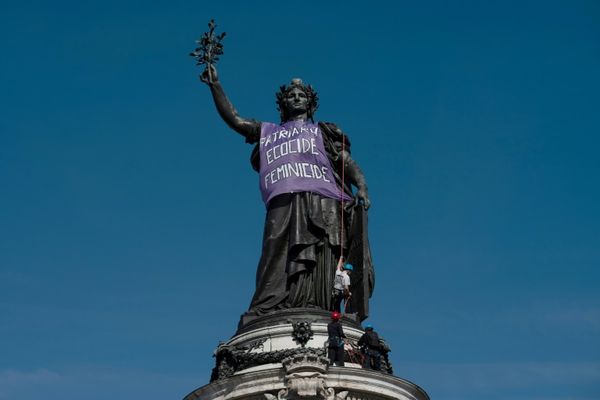
I woke up from the surgery sobbing. As the anaesthesia wore off, I croaked: “Did I really do it?” It was 2019, and I had just donated my left kidney to a stranger to save their life. Early that morning, I walked into one operating room, while the stranger walked into the one next door. This is known as an altruistic or Good Samaritan donation, and it is fair to say that it is an unusual thing to do: a very small percentage of living kidney donations in my native US are of this type.
As with anything unusual, people have questions. Whenever it comes up, the most frequent question is: “Why?” Frankly, I am puzzled by the question. Why does anyone do anything? In the parable of the Good Samaritan, a man lies on the road, injured and dying. Everyone who walks by ignores him. A man – from Samaria, a faraway place of a different race and religion – stops and cares for him, asking nothing in return. I am not a Christian and I didn’t know that story when I first began trying to explain myself. I wish I had.
Instead, I just recited facts: it is a relatively safe procedure with a high likelihood of success; thousands of people die each year in the US while waiting for an organ transplant due to a lack of donors. Plus, consider the awe-inspiring science that allows us to take a kidney from one person and give it to another, and the bizarre fact that, yes, you really do only need one.
What fascinates me is that while most people accept that my reasoning is compelling, they still say they would never donate a kidney. It is telling that I never ask them why: an unwillingness to give a kidney to a stranger is the default, and therefore normal, position.
I found the experience mostly miserable. I am not sure what I expected, but it was pretty much a standard medical procedure: tests, paperwork, sitting in waiting rooms. The surgery date was pushed back a few times, which caused a lot of problems for my work life and my finances. I was not patient with the transplant centre about these annoyances and delays. I may have even been rude. I feared I was dangerously close to having my stupid kidney rejected due to my unpleasant personality. Now that would be humiliating.
My biggest fear, however, was that I wouldn’t pass the psychosocial examination, an important step in the screening process. With my history of depression, I figured there was a fair chance I would be rejected. This made me feel weak, and perhaps damaged as a person. I was starting to get really stressed out.
The fact is that living kidney donation is major surgery, and major surgery is stressful. I discovered this for myself as the date of my surgery came closer and I was overwhelmed with fear and anxiety. I knew the statistics were on my side and that my fear was irrational. Why couldn’t I just think of the recipient instead of myself and stop being such a baby? This was the mood I was in as I was escorted into the operating room five years ago.
As I woke up in the recovery room, a kind nurse wiped tears from my face. I think I was overwhelmed with relief that I hadn’t chickened out. The nurse assured me that the surgery was successful, and that my kidney was “gorgeous”. I went home, recovered, and promptly sank into a pretty long depression. Maybe my body needed time to heal, maybe it was a huge comedown from an intense experience, or maybe it was not related to the donation.
I will never meet, or know anything about, the person who got my kidney, which is fine with me. I always intended to be anonymous. I never wanted anyone to feel they had to thank me for a gift that is frankly incommensurable. I just wanted them to feel someone else was willing to share some of their burden, and for them to have a better life. I hope that’s what happened.
When people tell me that what I did was amazing, or heroic, I don’t know what to say. I’m still puzzled that more people don’t jump at the chance to do this. But now that I know how scary and stressful surgery is, not just for the person having it, but for all the people around them, maybe I understand a little more.
Over the years, I have realised that to be human is to be all the people in the Good Samaritan story: we are the person who needs help, we are the people who don’t help, and we are – or can be – the person who, once in a while, is able to overcome their self-centredness to do something that is truly for the benefit of another.
That day in 2019, I was able to feel only relief that it was all over and shame that, by failing to be brave, calm and selfless the entire time, I hadn’t “done it right”. Today, I finally feel pride that I did something that was not easy for me, that had a real cost, for the benefit of someone else who needed it. I’m still not sure that I am a good person. But I know that on that day, I did a good thing. And that’s good enough.
Penny Lane is a documentary-maker. Her film Confessions of a Good Samaritan explores the science, ethics and philosophy of altruistic kidney donation through her experience of being a donor.







